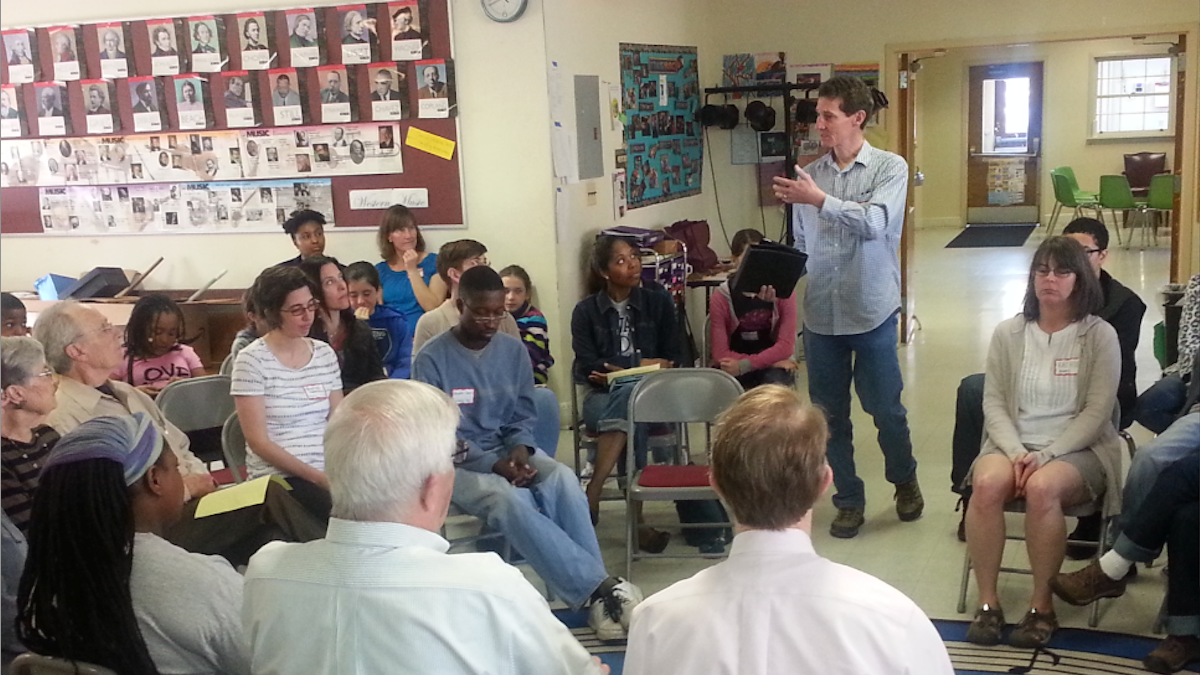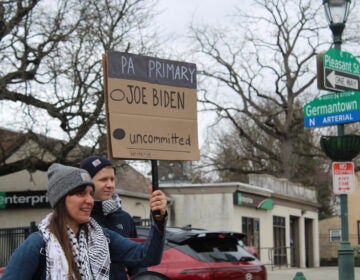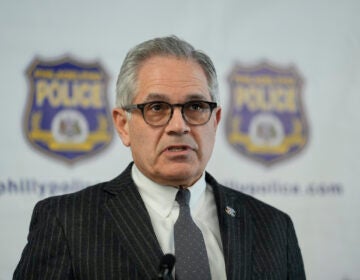Greene Street Friends works to unite congregation and extended school family

Green Street Friends Monthly Meeting member Anthony DiGiovanni leads a workshop session on the characteristics of a good clerk. (Queen Muse/for NewsWorks)
Children as young as 9 years old, and adults as old as 65, gathered at the Greene Street Friends School Meeting House in Germantown this weekend to discuss the benefits of “taking care of business” the Quaker way.
Edward Marshall, head of the Greene Street Friends School, said the goal of Saturday’s workshop was to unify the meeting community with the school’s faculty, students and parents.
“Our two communities — the school and the congregation — come here at different times. The congregation is here on Sundays, and the school is here five days a week,” Marshall explained. “But, we have all of the same practices and we believe in the same things.”
The discussion
Some 60 workshop participants talked about ways to lead and contribute to group decision-making during the Friends’ townhall-style meetings for worship and business.
Traditional Friends meetings include a number of guidelines for how clerks (or meeting leaders) and meeting attendees are expected to behave.
Attendees are expected to be open-minded, honest and respectful of the clerk. Clerks are responsible for setting and maintaining a peaceful tone throughout the meeting, as well as observing silence when necessary.
“Sometimes, the clerk will call for silence,” Green Street Monthly Meeting member JoAnn Seaver said. “When that happens, there’s something that works within us, and we are much more able to come into unity.”
Town and gown
Meanwhile, GSFS students learn the principles of clerking and contributing through mock-meeting activities at the school.
Marshall emphasized the importance of teaching children peaceful ways to reach consensus on business issues.
“The way the world takes care of business and solves problems, many times it involves fighting and violence,” he said. “We think this is a better way.
“Fighting and violence can get things done very quickly, but they leave a train of victims and so this process, frankly, is a slower process, but it leaves no victims. And, it tries to make it right for as many people as possible.”
More to come?
Kiri Harris, who teaches sixth grade and serves as dean of students at GSFS, helped facilitate group discussions.
She said the school may host similar intergenerational events in the future.
“I think we need to do it again and possibly open it up to other schools,” Harris said.
“Whether you’re 9 years old or 90 years old, the role is the same and you can learn from someone who’s doing that role no matter what their background is or what they’re age is,” she continued. “That’s why we wanted the kids to get together with the grown-ups, because it’s powerful like that.”
WHYY is your source for fact-based, in-depth journalism and information. As a nonprofit organization, we rely on financial support from readers like you. Please give today.




